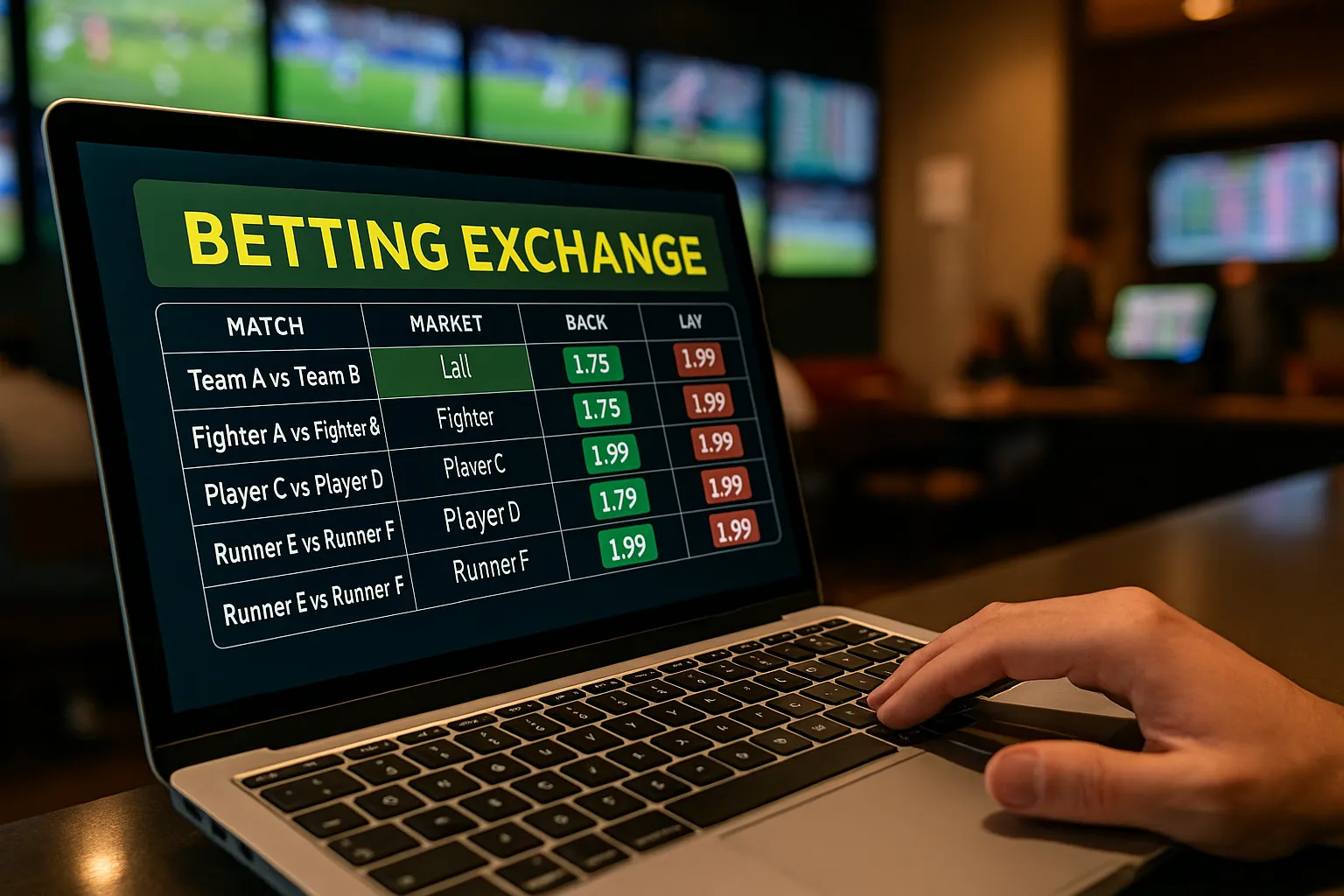The rise of betting exchanges has created a significant shift in the gambling industry, challenging the dominance of traditional bookmakers. Unlike the familiar model where players bet against the house, exchanges allow users to bet against each other. This peer-to-peer structure doesn’t just change the mechanics of wagering—it transforms pricing, fairness, and how bettors engage with markets. For anyone used to conventional betting shops or online sportsbooks, betting exchanges represent a refreshing alternative that places power back into the hands of the players.
What Makes Betting Exchanges Different?
Traditional bookmakers set odds with the goal of ensuring profit margins, adjusting lines to balance risk across wagers. In contrast, betting exchanges function more like stock markets, where bettors can propose and accept odds directly from one another. The platform takes a small commission, but otherwise, the market is driven by supply and demand.
This system often leads to better value for players. Since odds are not manipulated for bookmaker profit, they more closely reflect the true probabilities of events. For seasoned bettors, this transparency is a major advantage. It mirrors the way open markets work in other industries, where competition and demand shape the price. The sense of fairness and control is why exchanges have gained popularity, especially among those who were frustrated by bookmaker limitations.
This model has parallels in other industries where consumer-driven options challenge established systems. Just as shoppers explore non uk registered casinos to find different experiences outside strict regulatory frameworks, bettors are drawn to exchanges for their independence from traditional bookmaker influence.
The Role of Lay Betting
One of the most revolutionary aspects of betting exchanges is the ability to “lay” bets. This means that instead of betting on something to happen, you can bet against it. For example, rather than backing a football team to win, you could lay them to lose or draw. This option opens up strategies that simply aren’t available in bookmaker-based systems.
Lay betting allows bettors to act like bookmakers themselves, setting odds and taking on others’ stakes. It adds flexibility and mirrors trading strategies seen in financial markets. For experienced players, this can create opportunities for hedging, trading in and out of positions, and managing risk more actively.
Transparency and Market Efficiency
Exchanges bring a level of transparency that many bettors have long demanded. Since odds are generated by the market rather than controlled by a bookmaker, they tend to be more efficient. Any inefficiencies are quickly corrected by the flow of money, just as in financial markets.
This efficiency doesn’t mean exchanges are free from volatility. During high-profile events, odds can swing dramatically as money floods in. But this volatility often presents opportunities for savvy bettors who can spot mispriced odds and act quickly.
Challenges Betting Exchanges Face
While betting exchanges offer clear advantages, they also face challenges. Liquidity is a major factor. For smaller sports or niche markets, there may not be enough bettors to create competitive odds. This makes it harder for casual players to find the same experience they would get from a traditional bookmaker.
Additionally, exchanges demand more understanding from players. The concept of backing and laying, market shifts, and trading strategies can feel overwhelming for beginners. Without education, some bettors may stick with the simplicity of bookmakers, even if it means less value.
How Exchanges Could Shape the Future of Betting
Looking ahead, betting exchanges could play a pivotal role in reshaping the gambling industry. As more players become comfortable with digital platforms and demand greater transparency, exchanges may expand into new territories and sports. Integration with live betting, streaming, and even blockchain technology could further enhance their appeal.
For regulators, exchanges also pose interesting questions. Since the platform acts only as a middleman, the traditional role of a bookmaker is reduced. This could lead to new approaches in oversight, ensuring fairness while allowing peer-to-peer innovation to flourish.
Final Thoughts
Betting exchanges are not just a new platform; they represent a cultural shift in how people approach gambling. By giving bettors control over odds, enabling lay betting, and offering transparency, they challenge the bookmaker-driven model that has dominated for centuries.
The future of exchanges will depend on their ability to educate new users, expand liquidity, and maintain trust. But for those seeking value, fairness, and more control over their wagers, exchanges already feel like the natural evolution of betting markets. Just as new choices are reshaping other industries, exchanges are redefining what it means to place a bet in today’s digital age.










